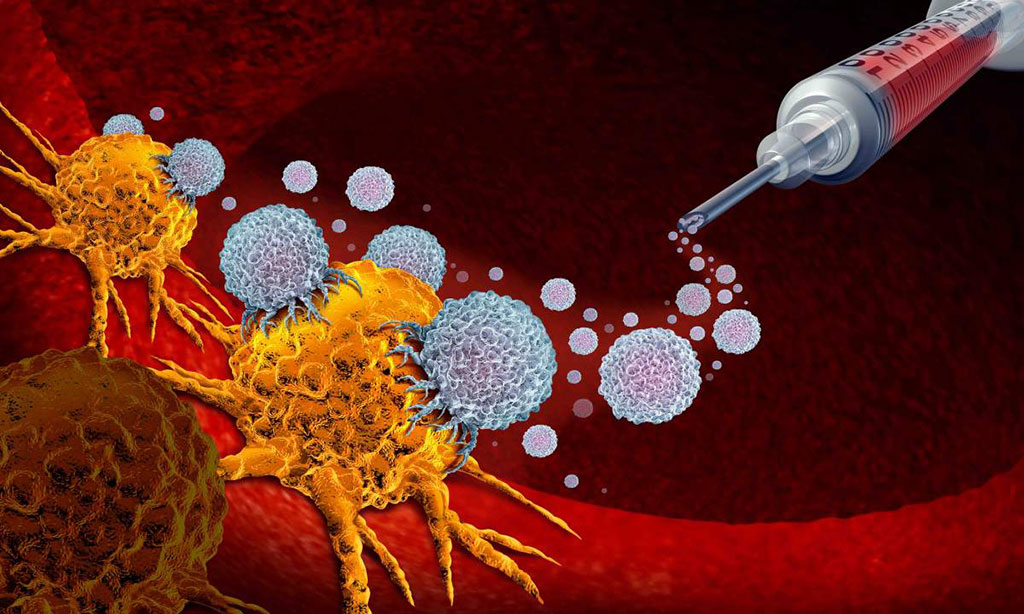Elevated Levels of Certain Immunoproteosome Components Predict Potential Success of Checkpoint Inhibitor Therapy in Melanoma Patients
By LabMedica International staff writers
Posted on 25 Feb 2020
Increased expression of two protein members of the “immunoproteosome” can serve as important biomarkers for stratifying melanoma patients for immune-checkpoint treatment. Posted on 25 Feb 2020
Checkpoint inhibitor therapy is a form of cancer immunotherapy, which targets immune checkpoints, key regulators of the immune system that when stimulated can dampen the immune response to an immunologic stimulus. Some cancers can protect themselves from attack by stimulating immune checkpoint targets. Checkpoint therapy can block inhibitory checkpoints, restoring immune system function.

Image: New research suggests the success of immunotherapy can be predicted before treatment is administered (Photo courtesy of Weizmann Institute of Science)
Proteasomes are protein complexes which degrade unneeded or damaged proteins by proteolysis, a chemical reaction that breaks peptide bonds. Proteasomes are part of a major mechanism by which cells regulate the concentration of particular proteins and degrade misfolded proteins. Investigators at the Weizmann Institute of Science (Rehovot, Israel) hypothesized that the overexpression of immunoproteasome subunits may influence the production of human leucocyte antigens (HLA) peptides, and that the new assortment of peptides may prompt a higher immune response.
To test this hypothesis, the investigators initially analyzed data from 470 melanoma patients that was available in the Cancer Genome Atlas. The Cancer Genome Atlas is a project, begun in 2005, to catalog genetic mutations responsible for cancer, using genome sequencing and bioinformatics. The Cancer Genome Atlas applies high-throughput genome analysis techniques to improve diagnosis, treatment, and prevention of cancer through a better understanding of the genetic basis of this disease.
In addition to analyzing data from the Cancer Genome Atlas, the investigators worked with tumor cell lines cultured from melanoma patients in which various proteosome components were overexpressed and identified the resulting HLA peptides. Results revealed that the overexpression of PSMB8 (proteasome subunit beta type-8) and PSMB9 (proteasome subunit beta type-9), two major components of the immunoproteasome, was predictive of better survival and improved response to immune-checkpoint inhibitors in melanoma patients.
The study was published in the February 14, 2020, online edition of the journal Nature Communications.
Related Links:
Weizmann Institute of Science














